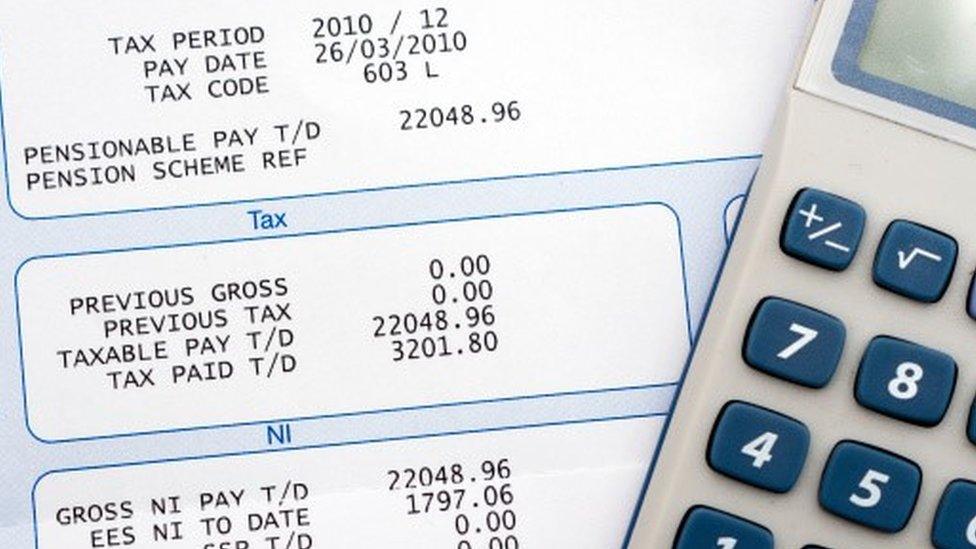Sir Ian Cheshire - new Living Wage will need to be reviewed
- Published
- comments

He is one of Britain's best known retailers and the head of Whitehall's group of business advisors.
Sir Ian Cheshire, the former chief executive of B&Q, Britain's largest DIY chain, called today for a review of the new National Living Wage to ensure that the costs to business are not too onerous.
Although Sir Ian made it clear that he supported the increase in the minimum wage, he told me that the impact on employment rates and the wage costs of many businesses was as yet unclear.
In the Budget in July, the Chancellor said that he wanted to see the minimum wage increase to £9 an hour by 2020.
Sir Ian said that could see wage bills increase by up to 60% for some businesses such as hotels, restaurants and care homes.
"We actually have been calling for a real increase in the minimum wage anyway, so in that sense the direction of travel is fine and we think it's broadly a good move, particularly if it helps to continue to boost the economy," Sir Ian, Whitehall's leading non-executive director, told the BBC.
"It will force businesses to focus on productivity and skills which are really big issues.
"I think most businesses over time can adapt.
"The problem is always when you get given a very short period in which to make a lot of change and that's where I think we should come back in two years, have a look at how we're doing and then work out whether that trajectory still makes sense.
"I think the real challenge is in the outer years - when you start to get to £9 and that starts to be a very significant increase.
"You're talking, in some models I've seen inside businesses, of - if you go from here to 2020, wage bills going up maybe 50% or 60%.
"And that is a very big issue, particularly obviously for people in retail and hospitality."
The increase in the minimum wage to the new "National Living Wage" was announced in July's Budget.
George Osborne said that he wanted to see the minimum wage rise rapidly.
Mixed reaction
Starting next April, for people over 24 the present minimum wage of £6.70 an hour will rise to £7.20 and then up in pretty substantial steps to £9 an hour by 2020.
The announcement came as a surprise - the rate is traditionally set by the Low Pay Commission but they seem not to have been involved in this announcement.
It was also of course controversial, because in that same budget Mr Osborne announced that benefits, and particularly tax credits, would be cut for those in work.
Organisations such as the Institute of Fiscal Studies said that the increases would not make up for the cuts in benefits.
Now, today is significant as it sees the last increase in the old minimum wage. After today, the Chancellor has to all intents and purposes taken control of the rate.
Business reaction has been mixed. Some sectors like care homes, pub chains and more broadly the hospitality industry said that the increases could mean laying off staff or increasing prices.
Some, though, such as Costa Coffee, Morrison's and Ikea, have seen it as an opportunity, saying that they will increase wages.
Whatever the outcome, Sir Ian says that the government and the UK will only understand the impact once the new rates - starting next year - start to bed in.
That is why he is calling for the review in 2017, which he wants to see involve the Low Pay Commission.